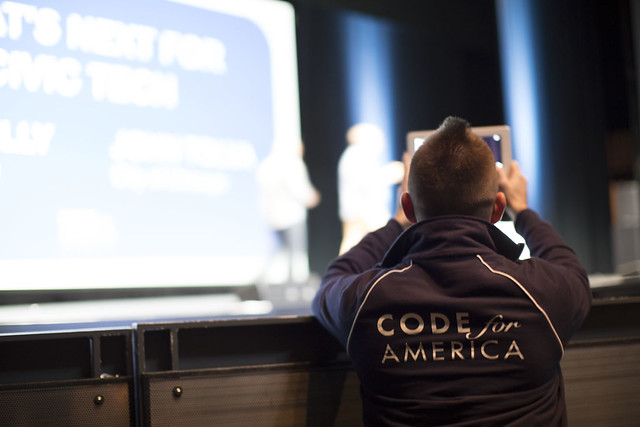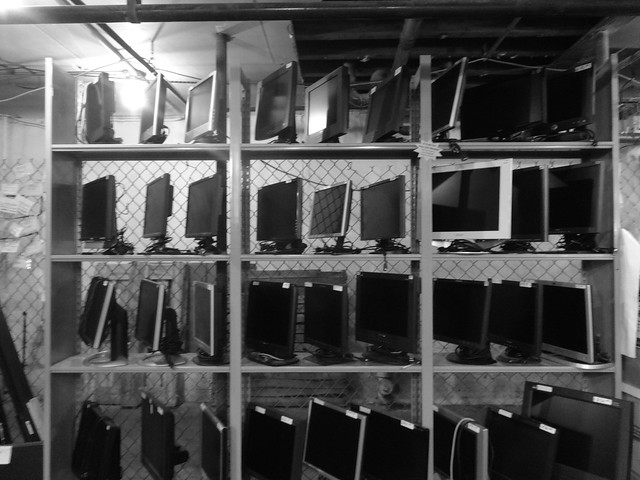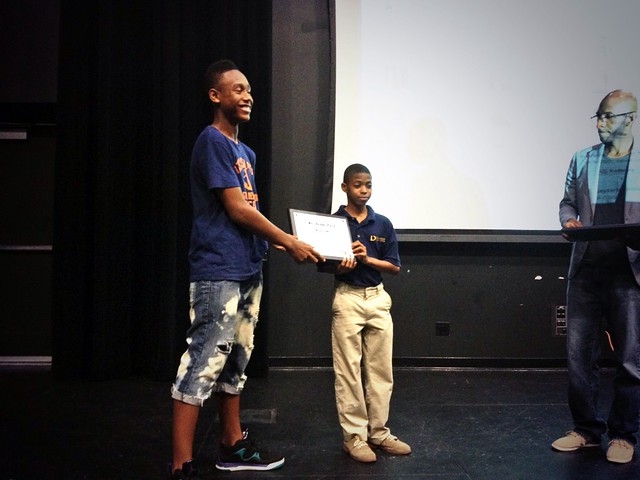For the past few Tuesdays, we’ve excerpted sections from Beyond Transparency: Open Data and the Future of Civic Innovation“, an anthology edited by Brett Goldstein with Lauren Dyson and published by Code for America.
I wrote a chapter titled, “Building a Smarter Chicago“, which I call “an illustrative, incomplete, and idiosyncratic look at the ecosystem in Chicago. It is meant to provide a thumbnail take on how the ecosystem developed here, while sparking fires elsewhere”. Here’s the last few sections, covering capital, products an the road ahead:
Capital: Philanthropy Leads, Capital Must Follow
Without money, there is no sustainability.
As an ecosystem matures, it finds ways to adapt and grow. In technology and data, growing means capital. In Chicago, a main source of capital currently comes from philanthropic sources, though there are some stirrings in the market.
The first open government data apps contest—Apps for Metro Chicago—was primarily funded by the MacArthur Foundation (O’Brien, 2011). The contest was an important moment in the ecosystem—it was the first time that government and developers were brought together in the context of a project with cash prizes.
The Smart Chicago Collaborative, a civic organization devoted to improving lives in Chicago through technology, is funded by the MacArthur Foundation and the Chicago Community Trust. Additional funding came through the federal government’s Broadband Technology Opportunities Program, a program designed to expand access and adoption of broadband opportunities in communities across America (National Telecommunications and Information Administration, n.d.).
EveryBlock was funded by a $1 million grant from the Knight Foundation, and then was acquired by MSNBC. This was a test of using philanthropic money and open source as a basis for a business. There have not been many examples since then. This is a problem that needs to be fixed—we need more experimentation, more value.
A digital startup hub in Chicago, known as 1871, has a number of civic startups in their space, including Smart Chicago, Tracklytics, Purple Binder, and Data Made. As these organizations deliver more value, the entire civic innovation sector will attract more capital.
Products: The Next Frontier
In order for the ecosystem to be self-sustaining, we have to create popular, scalable, and revenue-generating products with civic data.
Developers in Chicago are making a renewed focus on users. An example is the Civic User Testing Group run by Smart Chicago (Smart Chicago Collaborative, n.d.). We’ve spent years trying to get regular residents to participate in the product development process, and now we have more than five hundred people signed up in our first six months.
We have to do this—go beyond anecdote, beyond the cool app that lacks real traction, into creating business models and datasets that add value. We need to make products and services that people can’t live without.
This will require a mix of proprietary solutions, open source code, and shared standards. Companies need to follow viable product strategies—moving from one-off apps to sustainable systems. Interoperable data is a critical component to making this happen.
The good thing about this is that there are models to follow in other successful companies right here in Chicago. SitterCity is a vast consumer success story. OpenTable, Groupon, and GrubHub are all Chicago companies that found ways to reduce transaction friction in various markets.
They did this, in the main, with a strict attention to customers. In the civic innovation sector of the technology industry, we call those people “residents.” When you are serving people and make popular products, you are necessarily serving a civic need.
We’re beginning to focus on this work here in Chicago by adding value to civic data with unstructured public content, by creating systems around predictive analytics, and making baseline services, like Open311, that can serve future product needs.
What’s Your Ecosystem?
This is a short take on a complicated subject that, in the end, has to be completely local. Hopefully, it gives some specific examples of how we’ve built an open data ecosystem in Chicago and points to how far we have to go.
Chicago has contributed, in our small way, but we have to be measured by how we contribute to the entirety of the internet, rather than this civic innovation subset. We’re ready to keep going, and we’re excited to share our models with the rest of the country and the world.




